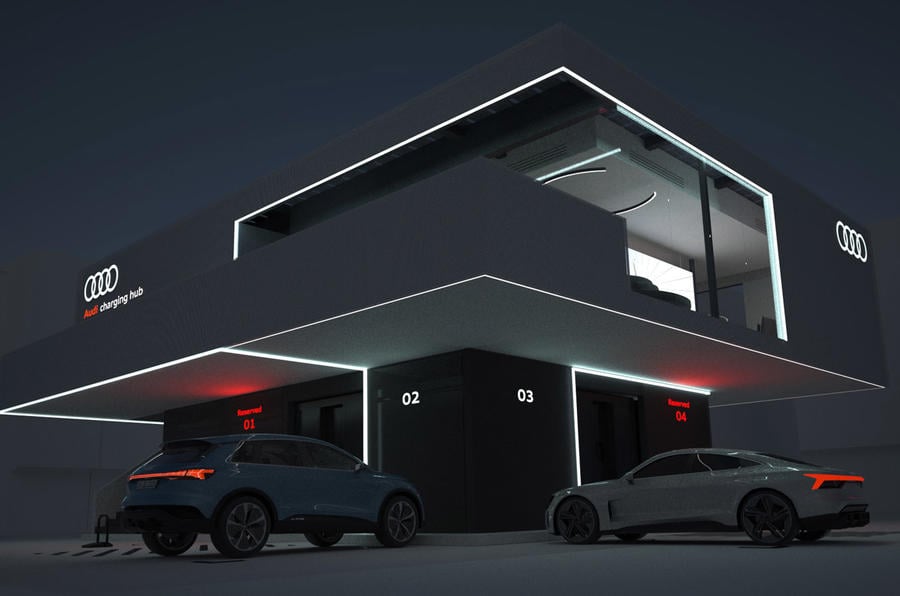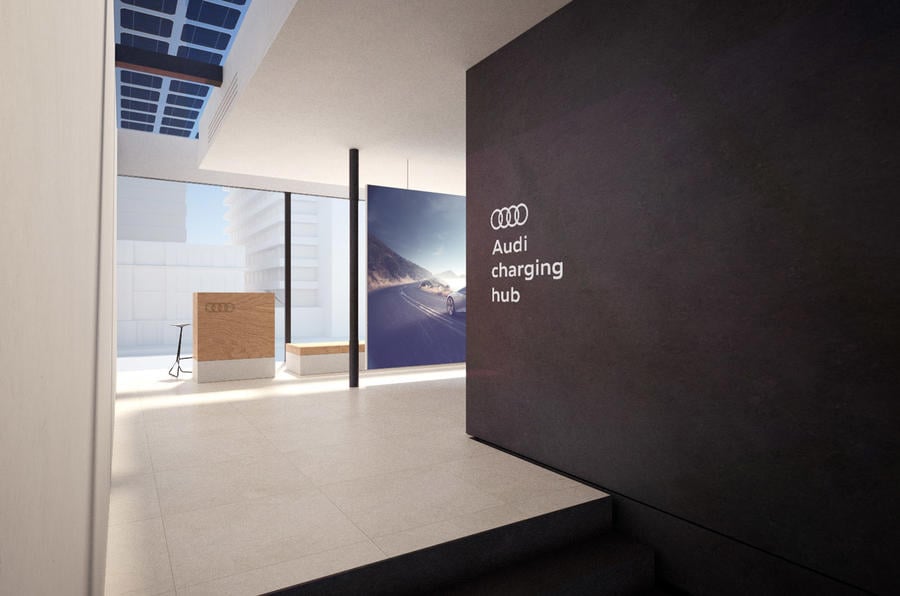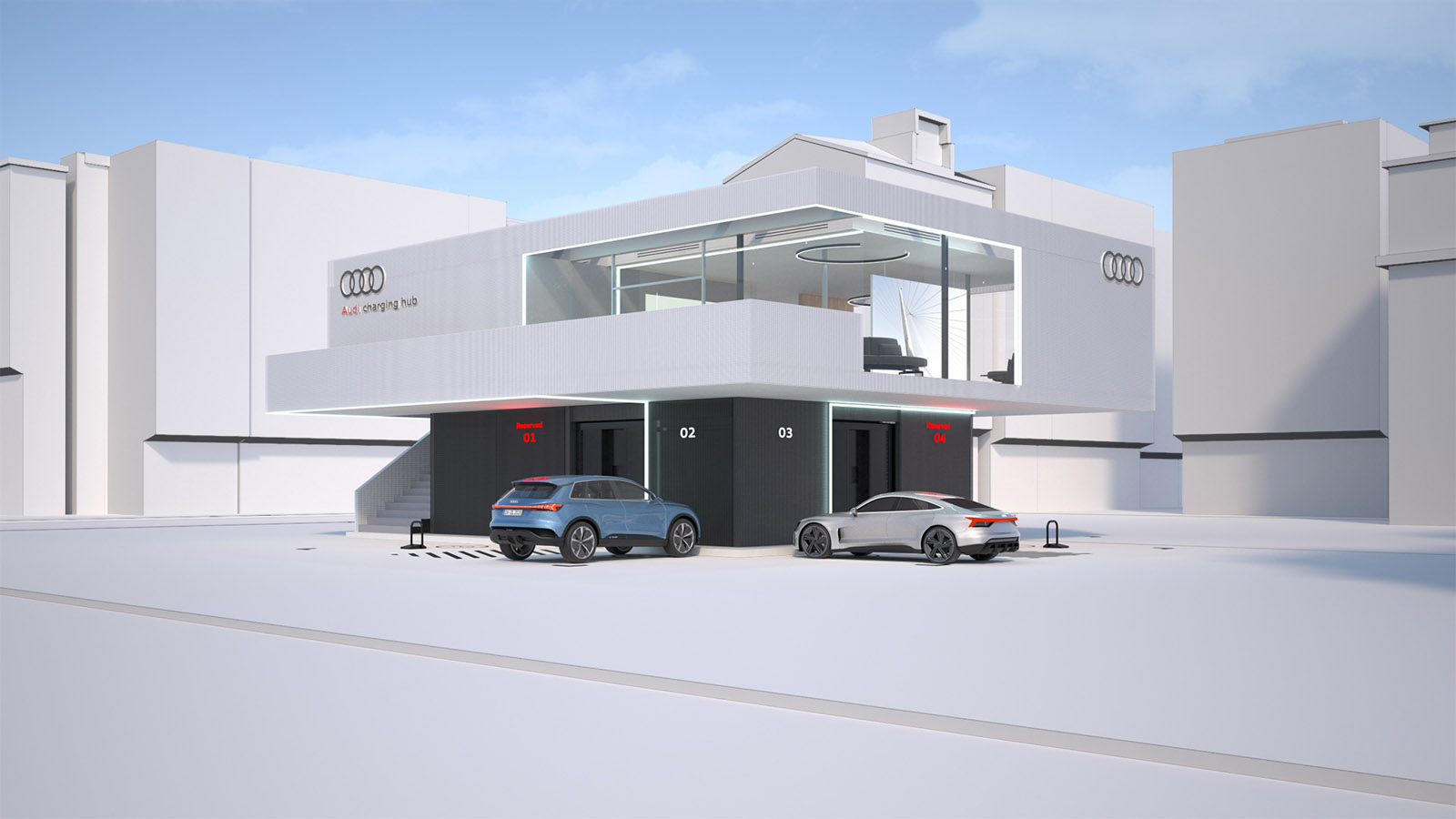Audi has previewed its vision for a network of premium-focused quick-charging stations intended to improve EV charging infrastructure in residential areas.
Beginning in the second half of this year, the firm will install six hubs in Germany to test the feasibility of the technology ahead of a “possible serial roll-out”. The precise locations have yet to be decided but talks with possible partners are underway.
The Audi charging hubs will be high-power charging (HPC) stations that can be reserved in advance by Audi owners. They will have charging outputs of up to 300kW, allowing an E-tron GT to charge from nearly empty to 80% battery in around 23 minutes.
Above the chargers themselves, the hubs will have a lounge area and canteen for drivers to use while they wait.
The hubs have been designed with ease of installation in mind. Made up of a series of cube structures, the hubs can be transported and installed in individual locations quickly. Power will be stored, Audi claims, in used lithium ion batteries taken from electric cars.

The batteries are capable of storing direct electric current. This makes complex infrastructure with high-voltage lines and expensive transformer units unnecessary, Audi says.
In addition to the cubes, the hubs feature solar panels on the roof for added energy intake.
Audi Technical Development board member Oliver Hoffman said: “The charging hub embodies our aspiration for the electric era and highlights Audi’s commitment to ‘Vorsprung durch Technik’. A flexible high-performing HPC charging park like this does not require much from the local electricity grid and uses a sustainable battery concept.”
“We are testing what the optimal technical solution is in a very realistic way. The focus in doing so is firmly on the needs of our customers,” Hoffmann added.

The charging hubs are the latest of a series of electricity-themed projects from Audi. Last summer, the German firm began developing a bi-directional charging system; this would allow electric cars not only to receive electricity from home stores, via wall chargers, but also to store it and even give it back to the grid.
Will Trinkwon




